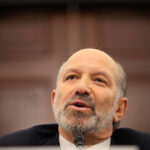The Israel BDS movement is winning some headlines and even some successes in challenging US and foreign investment in Israel government bonds which play a direct role in funding war crimes against Palestinians. The latest salvo in this campaign is a taxpayer lawsuit against Palm Beach County controller Joseph Abruzzo, who has invested 15% of the county’s funds in Israel government bonds. This row is also exposing the exceptionally Israel-friendly rules that allow states and municipalities to invest in Israel government bonds but not those of, say, other countries such as Germany, Switzerland, or Canada. We’ll give some background on the Israel bonds before turning to the Palm Beach County case and unseemly enthusiasm by among US government investors.
Your humble blogger must confess to having doubts about the “divest” part of the BDS campaign. The “boycott” part has and remains the best of the three options for inflicting costs on the genocidal state. Ansar Allah is also having unexpected success in its novel sanctions variant of messing with Israel-related shipping.
The divest part seemed least promising in terms of economic impact. Many of the key divestment targets in the US, namely university endowments, foundations, and pension funds, would be highly resistant to selling. The few that might knuncle under would find investors that were agnostic or Israel backers who would regard any large-ish sale as a buying opportunity. But it still seemed worthy to force trustees to ‘splain why they are supporting genocide.
But Israel sells lot of Israel bonds overseas, and of course most of all in the US, to help fund government operations. These bonds consist both tradable government bonds and bonds that are akin to the old US savings bonds, designed to be hold-to-maturity instruments.
They have become deservedly controversial because as the Israel genocide, um, war, has ramped up, so too has the issuance of these bonds, which fund the general budget and therefore the extermination program. Of course, US as stalwart backer of Israel is not likely to see much action on the divestiture front any time soon. But US is behind here; the highly respected Norway sovereign wealth fund and its largest public pension fund have exited their Israel government bond holdings and are also selling corporate investments. And the Palm Beach County suit, based an allegation of breach of fudiciary duty and questions about investment rationale, is increasing the scrutiny of these bonds generally.
Particularly for government investors, there are two types of considerations, economic and political. Buyers of Israel bonds make their investment case by arguing that they pay more interest than Treasuries. Wellie, they sure as hell ought to! Israel is a small economy. These bonds are dollar-denominated, exposing Israel to currency risk. They are not as liquid as Treasuries. And importantly, the economic prospects for Israel are negative. Israel reported a GDP fall at an annual rate for 4Q 2023 of nearly 22%. The report for 1Q 2024 was a rise of 14.1%. which even if not statistically manipulated (recall that many key negatives, such as tourism being dead and the Houthis restricting trade are very much in effect) still puts Israel as well worse off than before the war.
Both Moody’s and S&P have downgraded Israel’s sovereign debt since the war started by one notch; Fitch has Israel at the same ratings level of A+ as Moodys, which is a ratings level lower than the S&P designation. All three ratings agencies have a negative outlook.1
Yours truly can pretty much guarantee that the US state and municipal investors in these bonds lacked the analytical chops to analyze properly whether the interest premium to Treasuries adequately compensates for the additional risk of the Israel bonds. They would rely on salesman patter. Given that many of these investors are likely investing out of a stealthy statement of personal affinity or to placate/curry favor with powerful Zionist constituents, and that that is overwhelmingly the motivation for wealthy individuals for in these bonds, absent other evidence, these bonds are probably overpriced relative to their investment merits. And it seems just as unlikely that many recognized losses if they bought them before the credit agency downgrades and posting of negative outlooks.
The Cradle published last week that Israel officials are warning of continued large deficits as war costs reach $70 billion. Experts also described a continuing poor outlook for the economy. From The Cradle:
The chief of Israel’s central bank said on 30 May that the cost of the ongoing war in the Gaza Strip will amount to nearly $70 billion of the Israeli budget for 2025…
“The defense and civilian costs amount to hundreds of billions of shekels – it is a heavy burden … The country’s risk premium increased while the excess devaluation of the shekel continued, with devaluation of course leading to price increases.”
The significant boost in defense spending has played a major role in the mounting costs.
Manuel Trajtenberg, a professor from Tel Aviv University’s economics department, warned that Israel “may slide back into another lost decade” if it does not lower its defense-spending-to-GDP ratio, referring to a period of economic decline following the 1973 Arab–Israeli war after which Israel spent years trying to balance between its defense and development spending as a result of the costs of that war on its economy.
The central bank chief’s comments came a day after Tzachi Hanegbi, head of Israel’s National Security Council, said that another seven months of fighting is expected to take place in the Gaza Strip, where Tel Aviv has yet to achieve its stated goal of eradicating Hamas and returning its captive prisoners.
The Financial Times reported in November how the war was forcing Israel to step up its overseas borrowing:
Israel has borrowed billions of dollars in recent weeks through privately negotiated deals to help fund its war against Hamas but is having to pay unusually high borrowing costs to get the deals over the line.
Yves here. The higher interest rates reflected economic risk so one could argue, as many investors no doubt told themselves, that the greater hazards were priced in. But with the benefit of hindsight, did they adequately anticipate the rating agency downgrades and the continuing budget bleeding and weakening of the currency? As we’ll see in a later article from the pink paper, Israel has a big pool of partisan buyers in the US, so even this richer pricing can’t be assumed to be economically rational. Continuing with relevant sections of the same story:
Since Hamas’s attack on October 7, Israel has raised more than $6bn from international debt investors. This has included $5.1bn across three new bond issues and six top-ups of existing dollar and euro-denominated bonds, and more than $1bn of fundraising through a US entity.
Investors said recent bonds had been issued in so-called private placements, a process through which the securities are not offered to the public market but instead sold to select investors.
The final pricing of the deals was not disclosed. However, bankers said they had priced in line with what they would expect from a public deal. Of two dollar bonds issued in November, Israel is paying coupons of 6.25 per cent and 6.5 per cent on bonds maturing in four and eight years’ time.
That is much higher than benchmark US Treasury yields, which ranged between 4.5 and 4.7 per cent when the bonds were issued. The deals were arranged by Goldman Sachs and Bank of America respectively.
In contrast, Israel issued a 2033 dollar bond in January with a coupon of 4.5 per cent, a much smaller spread — or gap — above Treasury yields, which were 3.6 per cent at the time.
Yves again. I hate to sound like a stickler, but private placement buyers should get a better deal (pricing or other terms) than public securities investor to compensate for the lack of liquidity. Nevertheless, the article did confirm this was a difficult sale due to both appearance and economic worries in some circles:
Investors and analysts noted that the bumper issuance was done through private placements rather than via open syndications and roadshows, which are usually carried out when new bonds are launched.
The reason for this, they said, could be to raise funds for the war effort quickly or without attracting unwanted attention, and could be a sign of how nervous some investors had grown about buying Israel’s debt.
Norway’s big investors have been in the lead of divesting from Israel. That includes the oddly generally ignored decision of its highly respected sovereign wealth fund of exiting its Israel bonds, a $500 billion position, in November. From Israel and Palestine:
Norway’s sovereign wealth fund, the world’s largest, has made a significant move by completely divesting from Israel Bonds, citing the ongoing war on Gaza and adherence to its ethical guidelines. This decision by Norges Bank Investment Management, overseeing a staggering $1.4 trillion, marks a pivotal moment in the financial sector’s response to the Israeli-Palestinian conflict. The divestment, valued at nearly half a billion dollars, is not only a financial blow to Israel but also a symbolic victory for the Boycott, Divestment, and Sanctions (BDS) movement, which campaigns against Israeli apartheid and for Palestinian rights.
And in early May, KLP, Norway’s largest pension fund, divests from companies tied to Israeli settlements in Uniglobal:
With some US$95 billion worth of assets, Norway’s largest pension fund KLP has divested from 16 companies due to their ties to Israeli settlements in the occupied West Bank…
KLP reached this decision from conducting human rights due diligence on its investments, which considered the human rights risks at the companies identified in the 2020 UN report as having operations linked to the Israeli settlements.
The exclusion comes weeks after Norway’s sovereign wealth fund, managed by Norges Bank, pulled out of construction and real estate companies in the Palestinian territories. The United Nations recognizes the occupation of the West Bank as illegal.
Danish pensions have also been unwinding funding to anti-Palestine efforts, so the divestment effort is starting to get traction in Northern Europe.
So back to the US battle lines. Both the Financial Times and The Nation covered the pending Palm Beach County suit and the intensified scrutiny of government investments in Israel bonds. First from the Financial Times:
One of the largest investors in Israel’s bonds is not a hedge fund titan or a Wall Street trader, but an elected municipal comptroller investing the tax dollars of Palm Beach County.
Joseph Abruzzo, the overseer of investments for Florida’s largest county, holds $700mn out of his $4.6bn overall portfolio in so-called Israel bonds….
Israel Bonds, the official underwriter for the debt, says it has sold more than $3bn of the debt worldwide, three times the annual average, since October 7 last year — the date of the Hamas assault that triggered the latest conflict. Local governments in the US including the states of Florida, Indiana and Ohio have been enthusiastic recent buyers.
Sold directly to US investors sympathetic to Israel’s cause, such bonds are becoming an increasingly high-profile part of the country’s external funding. Last year they accounted for a quarter of Israel’s external debt issuance…..
Israel also sold $8bn in more conventional international US dollar bonds in March…
The bonds, which are difficult to sell and are designed to be held to maturity, were for many years mostly marketed to the global Jewish diaspora…
They are now being bought up across the US heartland due to a combination of political solidarity with Israel, demand for yields above those of US Treasuries but with a perceived low risk, and laws that have for years gradually placed Israel’s debt among the few permitted bond investments for typically staid local government portfolios.
Note that there are two type of Israel bonds, the “conventional” ones which are presumably readily tradable, and the private placement bonds being hoovered up by US government investors, which are hold to maturity and therefore higher risk. Note also that this is effectively affinity marketing being paid for by taxpayers who are not only in large measure not part of the affinity group but included voters who are opposed to Zionism.
Even though Palm Beach County controller Abruzzo swears he loves the higher yields, it seems he also loves how he is currying favor with voters in a significantly Jewish community:
Abruzzo — who says he has received, “without exaggeration, full-room applauses and standing ovations” at community meetings for buying the bonds — said he was the first American investor to place an order for the Israel bonds after the October attack by Hamas.
The Financial Times saw fit to run a letter from the editor penned by a seasoned investor in Israel securities who disapproved of Abruzzo’s Israel bond holdings. From Ian Maitland:
Having had responsibility for NatWest exposure to Israel for many years I am a firm supporter of Israel (though their present policy is easy to understand but hard to defend).
Palm Beach County is taking a frightening risk in committing such a large proportion of its funds to one nation — and one class of security. This is reckless, regardless of any enthusiasm for Israel.
I am surprised that your interesting article does not mention the risks, which no public fund (or indeed any prudent investor) should undertake
So we turn to The Nation for a pointed critique in How Israel Bonds Put the Cost of the War in Gaza on US States and Municipalities:
On September 30, 2023, the end of the fiscal year and just days before the Hamas attack on Israel, Palm Beach County held just $40 million in Israel bonds. At the time, this represented about 1 percent of Palm Beach County’s total portfolio. Yet, over the next six months, Abruzzo made a series of investments adding up to a total of $700 million of taxpayer dollars in Israel bonds. The comptroller’s office described the investments as a “show of support for Israel following their declaration of war against Hamas militants.”
Abruzzo’s spending spree transformed Palm Beach County into the single largest holder of Israel bonds in the world. The investment now represents 15 percent of Palm Beach County’s $3.6 billion investment portfolio.
The lawsuit alleges that these investments constitute a violation of Florida Statute 218.415(24)(b), which mandates that “
It’s going to be hard for Abruzzo to distance himself from his openly expressed Israle solidarity. The lawsuit describes both Israel’s deteriorating economy and widening political schisms in detail.
Other government investors are being dragged into the hot lights:
U.S. State and Local Treasuries Hold At Least $1.6 Billion in Israel Bonds https://t.co/GxERxugeUH
— AKSARBENT (@aksarbent) May 27, 2024
Along with some other investors who aren’t subject to disclosure requirements:
UAW Labor for Palestine has learned that the UAW International Executive Board recently voted down a motion to divest from Israel Bonds 🤔🤔🤔@uawlabor4pal pic.twitter.com/3WnADIMlec
— People’s City Council – Los Angeles (@PplsCityCouncil) May 21, 2024
Again, none of this is earth-shaking. It’s more of a death-of-a-thousand-cuts process, another element of an attritional war against Israel’s legitimacy.
______
1 John Helmer maintains that “The US Treasury guarantees bond holders that if Israel defaults on repayment of its obligations, the US will pay instead.” I have not seen any acknowledgement of that in any press coverage, and it would be inconsistent with major bond agencies rating Israel in the mere single A range. If that were true, it would be an easy defense for litigation-futures-holding Palm Beach treasurer, who instead justified his investment by saying it would be money good as long as there was as state of Israel, which he presented as an immutable condition. However, I can see that many investors assume that the US would rescue Israel bondholders as necessary. This seems awfully sporting given that the US has no treaty with Israel.






